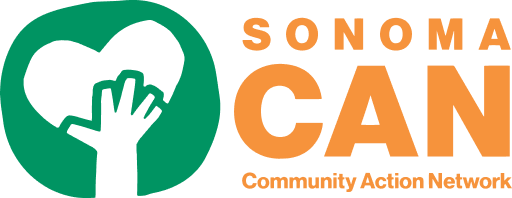About Sonoma CAN
Transforming Lives In Sonoma County

Our preschool programs are currently funded by the Office of Head Start. For our 152 community center-based slots for children (ages 3 – 5) in 8 centers across Rohnert Park, Santa Rosa, Windsor, and Cloverdale 4 days per week, 11 months per year. We are held to rigorous service and developmental standards. Our classrooms can only have a 10-1 ratio with a max of 20 children and we have three staff in each classroom to allow for breaks and managing meals.

Our Goal
Our goal is to build a strong foundation for school readiness by recognizing each child’s individual strengths and needs as we provide opportunities for each child to grow physically, socially, emotionally, and intellectually.
The cornerstone of our Head Start Family Literacy program is Raising a Reader; a program that sends book bags home to families in an ongoing rotation throughout the year.

Teacher Requirements
Our lead teachers are required to have a minimum number of child education and supervision units and to be fully trained in the early learning and child development models for the classroom environment. They include:
- Building strong relationships as the foundational driver for early learning.
- Engaging families in their child’s learning and recognizing parents as a child’s first and most influential teacher.
- Implementing effective practices to promote children’s growth through the Early Learning Outcomes Framework [link to sub page] that facilitates and measure development in five key domains: approaches to learning, social and emotional development, language and literacy, cognition, and physical development. OHS offers an interactive site to explore the outcomes framework.
- Encouraging learning through play, creative expression, and guided activities with schedules and lesson plans that include the cultural and language heritage of each child and family in relevant ways.
- Creating welcoming learning environments in indoor and outdoor settings that are well-organized and safe.
- Conducting ongoing screenings and assessments to ensure each child is making progress, and collaborating with parents and community agencies when further assessment is needed.
- Supporting the full inclusion of children with disabilities and building on their strengths.





